耳にノイズ���静かななみ | 20y | Brazilian | Aries Sun, Taurus Rising | Music fan | Occasional reader and moviegoer | Xwitter - @HLDRMM | rateyourmusic - HelderMusMet
Don't wanna be here? Send us removal request.
Text
Why is Rick Beato Wrong?
Every so often I see a youtuber responding to something Rick Beato said on his channel, often calling on his inadequate views on contemporary popular music. I don't disagree with them, however, I feel like these responses lack context, exemplification and basically anything of substance to go along with why he's wrong. I'm bored, so let's go on a journey of WHY he's wrong.
What makes Rick Beato say wrong things?
The first thing we should know is that Richard John Beato is a producer and musician that started in the 1980s. He has a jazz background, and studied in the NEC, earning a Master's Degree in jazz studies in 1987, which signals to me that he entered during the renovation period of the 80s, and less than two decades after the inauguration of the Jazz Program. He also studied there during Laurence Lesser's tenure, a cellist known for his performance of modern and contemporary classical music.
So, looking at this, it's easy to assume he's a very conservative, even reactionary old-head who is only concerned with jazz and complexity, which is absolutely not the case. He seems to be infatuated with newer pop artists, such as Billie Eilish and Sabrina Carpenter, and even seems to enjoy Ariana Grande. He's also not just waging war on modern technology, he's not a luddite acting out against DAWs, or even electronic production. What he does seem pretty intent on is pushing back against modern Hip-Hop aesthetics, especially Autotune (which he seems to mix-up with automatic and manual pitch-correction and pitch-shifting) and trap-style production as codified by Soundcloud during the early 2010s.
That to me doesn't necessarily signal someone who is afraid of modernism, or even just someone who hates a group's music. What it DOES signal to me is someone who is not really prepared for a big overhaul of the music industry.
2. Rick Beato doesn't know the history of pop/rap aesthetics
Beato was, during the 90s and 2000s, mostly concerned with engineering for Post-Grunge and Alternative Rock acts, none of which seem to be that popular or famous, which is not a dig against him, but rather a look into what his preoccupations were: underground alternative rock bands. One thing he doesn't seem particularly concerned with, either on his channel or his production and engineering credits, is electronic pop and hip-hop, which immediately flags some of his takes. He is well-meaning, yes, and even open to some non-rock or jazz-based aesthetics, but his background will, by design, make his purview of anything else a bit shallow. Not only that, most of the records he was producing in the 90s and 2000s were not that indebted to underground experiments, but rather were comping some of the biggest musical trends of the past and present, including grunge and power pop. Most of his videos tend to focus on the 1960s-1990s, with some attention paid to technically proficient and popular Instagram personalities, like Mateus Asato and Mohini Dey. His perspective on anything pop or rap is most likely defined by radio, and his musical discoveries are mediated by popularity or legacy, not crate-digging.
So, with all of that mentioned, it is pretty safe to assume that he hasn't kept in touch with Hip Hop, especially considering that, while very popular during the 90s, it was still mostly a niche genre that had a few crossover hits, not unlike Country music. It is, then, reasonable to state, for example, that Rick is not terribly familiar with the history of Pitch Correction technology, and how it was developed in the 70s through a series of tricks derived from early electroacoustic instruments, or how electronic pop really got going with experimentation by artists such as Madonna, Björk and even R&B stars such as Janet Jackson and Aaliyah. He is at best uninformed, at worst willfully ignorant of the history of the music he comments on.
3. Rick Beato is not terribly concerned with Hip Hop in general
One common theme in Rick's video's is that he's unimpressed with Hip Hop music, with his most recent stream he comments on how this current trend is "lyrically sparse", "production-based", "so compressed" and it "doesn't have a lot of information" (this last one referring to harmonic content in the chord progressions, so as to not misrepresent his argument), which is not strictly untrue. Hip Hop music has, since the mid-80s, developed a less conscious and politically-based focus in its most popular forms, and the river that divides "political" or "conscious" hip hop from "party rap" has become wider and wider. The fact of the matter is, Rick is not necessarily wrong in his observations, but the conclusions he draws are misaligned with a more complex history.
Often when looking at hip hop we have to remember that it was and is music made, first and foremost, for and by a marginalized community, and marginalized communities share some traits together. For example, DUB music was often supposed to be just as loud, bassy and compressed as modern trap music, Brazilian Funk also is pretty concerned with volume. All of which to say that marginalized black communities often rely on sound loudness to convey musical (and non-musical) aspects in the sounds they make.
4. Ok, but WHY does he dislike pop and rap music?
One thing we must understand when looking at Rick's criticisms of pop and rap music is that he's not really concerned with complexity, necessarily, he seems to not have any major issues with commonplace chord progressions, for example. He's wary of formulaic music, sure, but he isn't immediately hostile most of the time. What he is, however, is afraid of A.I. music.
4.1. Rick Beato draws lines where there are none.
The whole thing Rick Beato is afraid of isn't really Hip Hop, Pop or any other genre of music, but rather musicians not getting their due. He has criticised interpolation, and seems terrified of A.I. music, the latter of which is very much justified. What is not justified, however, is the direct line he pulls from generic pop and rap music (which is, at the end of the day, mostly benign) and industry takeover. His biggest problem is not having a very articulate form of saying that the record industry, the place where he put his effort, money and time into, is going to leave him behind. He is afraid of his disposability when confronted with a machine that is wholly uncaring, and up until this point he did not have to care.
5. Is Rick Beato actually bigoted?
I wouldn't say so, but his mismanaged and flaccid arguments against a whole subsect of the industry does smack of underlying biases that, when not addressed, misdirect the attention of his ideas against BIPOC and women, instead of the gnawing mouth and teeth of the record industry.
Bonus. Is the record industry evil?
Yes, and it always was. See 1942-1944 Recording Musicians' Strike.
#copyright#rick beato#music#pop music#god oh god let's actually understand what is the problem of what he's saying
1 note
·
View note
Photo
I agree hole rocks

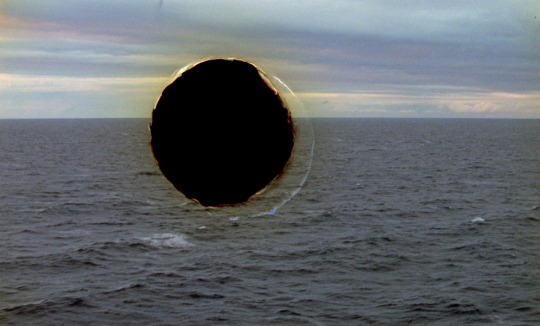

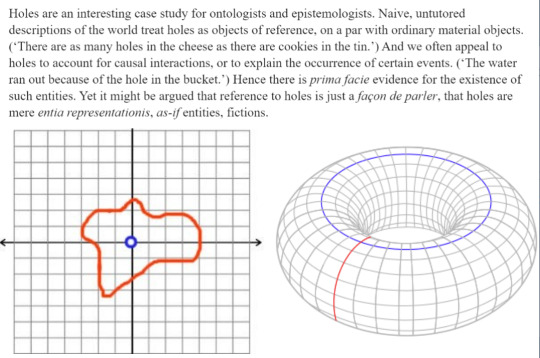
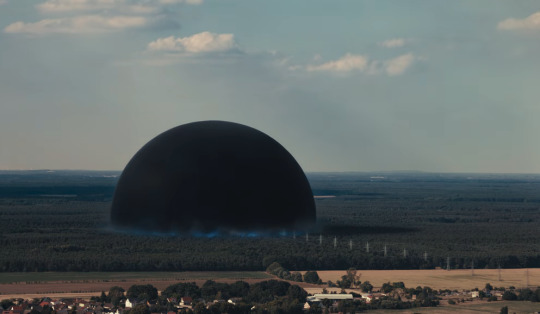

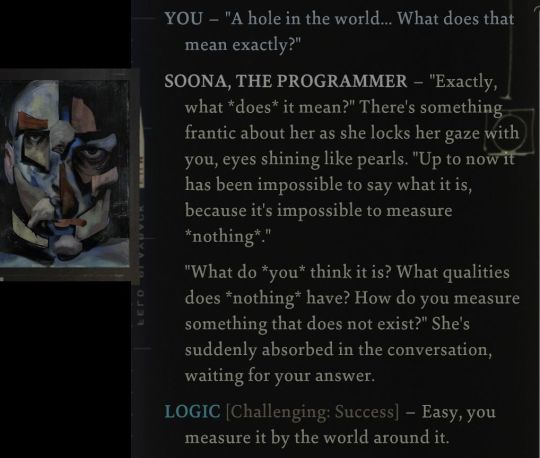
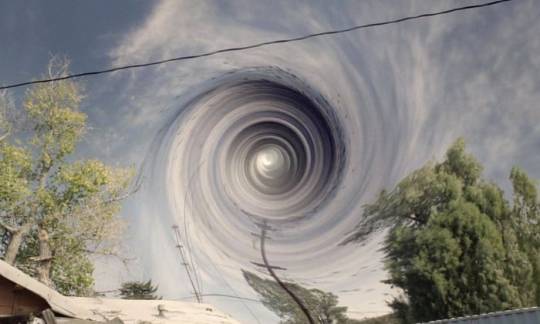

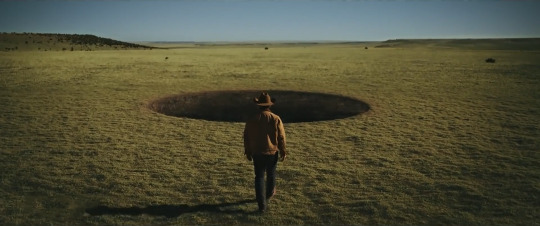

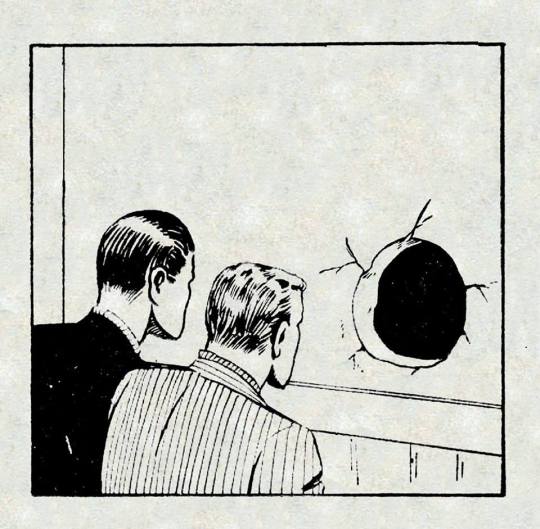

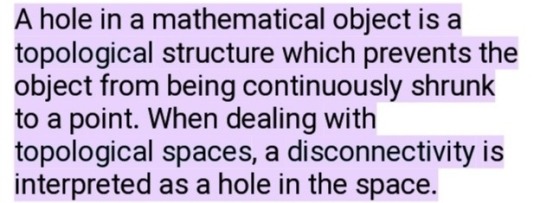
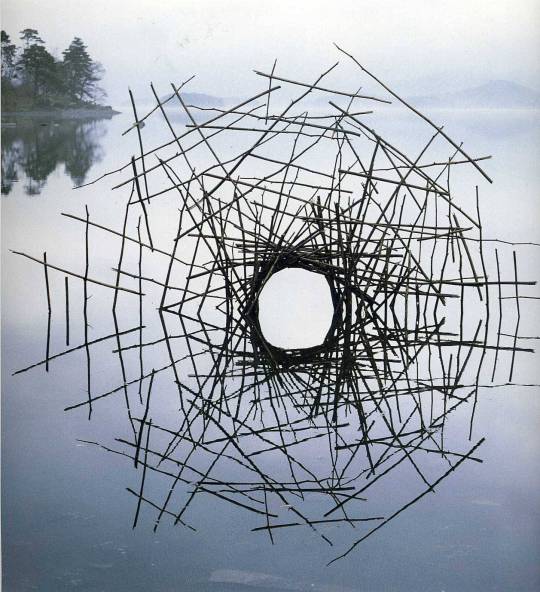








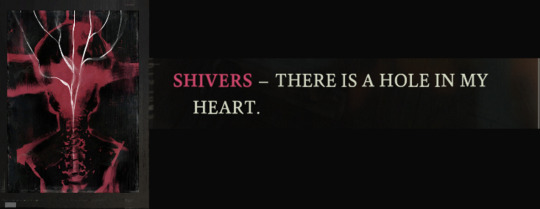
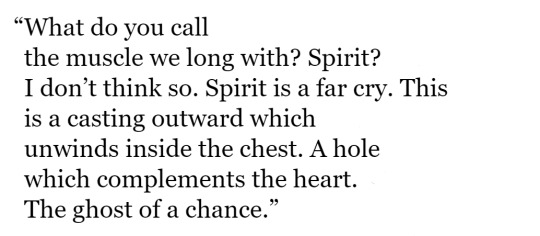




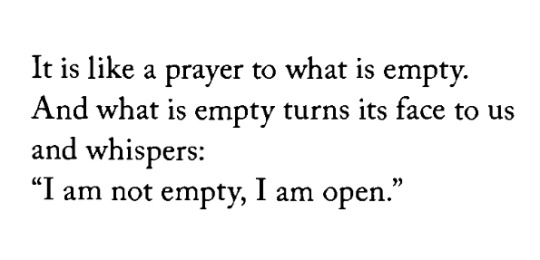
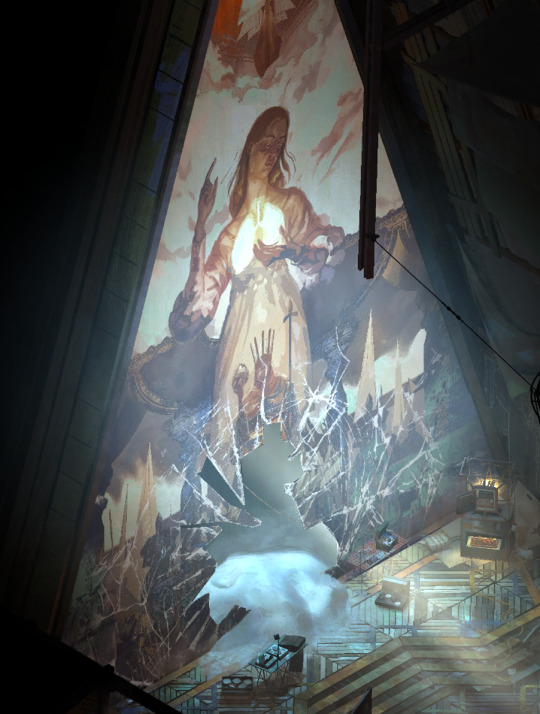
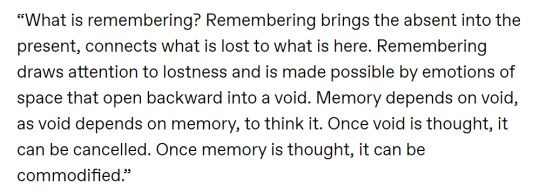

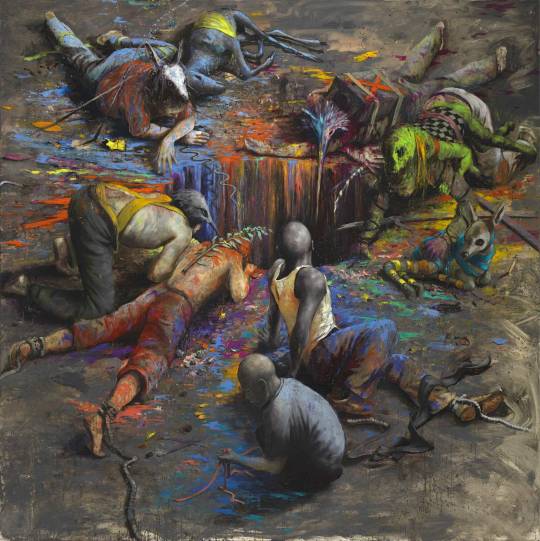
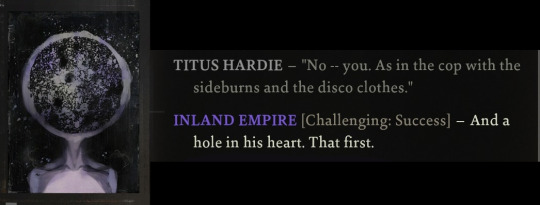
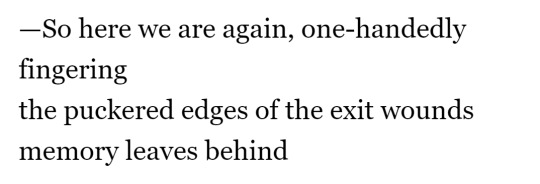






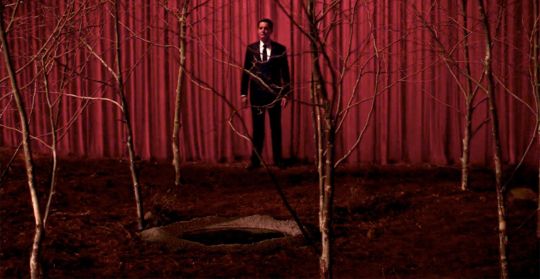

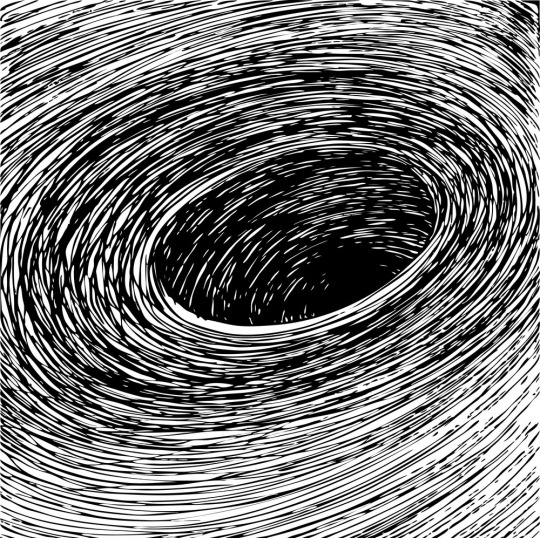

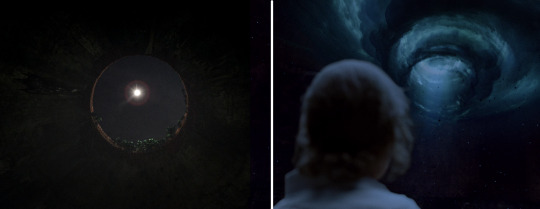
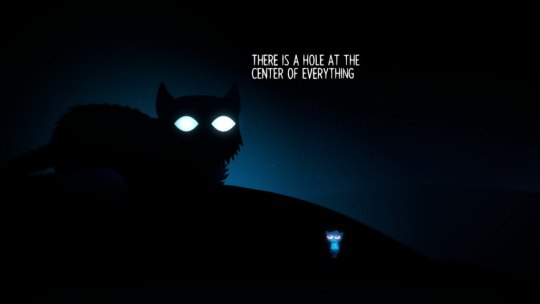
define hole / is a hole a real thing? / Marco Poloni, Black Hole, from The Majorana Experiment, 2010 / Flatfields Fotografien / What We Talk About When We Talk About Holes / Dark (2017-2020) / post / Disco Elysium / Twin Peaks: The Return (2017) / Donnie Darko (2001) / Outer Range (2022) / Kaveh Akbar, from “The Miracle,” Pilgrim Bell / post / Weizmann Institute of Science / Mathworld / post / post / post / post / Anne Boyer, from “Woman Sitting at the Machine,” in A Handbook of Disappointed Fate / Star Wars: Knights of the Old Republic II: The Sith Lords / Dennis Patrick Slattery, The Wounded Body: Remembering the Markings of Flesh / The Incredulity of Saint Thomas, Caravaggio, 1601–1602 (detail) / The Incredulity of St. Thomas, Bernardo Strozzi, 1582-1644 (detail) / Don McKay, from “Twinflower,” Field Marks: The Poetry of Don McKay, intro. Méira Cook (Wilfrid Laurier University Press, 2006) / thierryetherve / Pathologic / post / Gregory Orr, from How Beautiful the Beloved / Tomas Tranströmer, tr. by Robert Bly, from a poem titled “Track” / Disco Elysium / Anne Carson, Economy of the Unlost / Pathologic 2 / Jonas Burgert, Sand brennt Blatt (2010) / Disco Elysium / Carl Phillips, from “Givingly”, Wild is the Wind / from “The Man With a Hole in His Head” by Rick Bursky / Rosario Castellanos, ‘Memorandum on Tlatelolco’ (tr. Maureen Ahern) / post / Pathologic / The Juniper Tree (Nietzchka Keene | 1990) / John Banville, Eclipse / Twin Peaks / Disco Elysium / VectorStock / True Detective / Night in the Woods
37K notes
·
View notes
Text
Kaddish (Or Lack Thereof)
I anguish over the bodies of lovers Childishly weeping, moaning Bemoaning their passing They rest not in Glory Basking in a light no one can attain The children and flowers bloom in blood Blossoming the bastard violence of No, not 'yore! Of the moment the Sun brazenly Touches down on the wasteland of 'ole A grossly misunderstood concept of care Could not ever contain the carcinogenic Prayer of a cynical Kaddish Wailing over their remains The world shan't say "Rest in Glory" one of these days There is no peace to be found within reason I reject this! The crimes of a butterfly, wings crimson With the ether of a life poorly lived Children in the arms of the season Cradled carelessly by an undead nature Lamentation shall not, however Help a frail rest of a thing there was Hold the heart of the world now scorched
0 notes
Text
On Love and Desire
I was teaching a class on tuesday. Everything was going alright, and all of that, until we got to the next unit of our textbook, which is all about love. This was met with some disgruntled moaning from the students (all teenagers), each saying (to some extent) that love is dead, or that we're all pieces of shit, which is to be expected, after all they are teenagers and teenagers are incredibly angsty, we've all been there and done that.
However, the cool part about that class was that we took some time to discuss love, what it was or wasn't, and how we are built from and for love and desire. They mostly bemoaned the idea of romance, but one of them talked about the need for trust, how we are made not from individual pieces meant to be glued together. It was very endearing, if a bit of a basic outlook.
As I enter a relationship, I get less and less secure in my standing, my convictions on how to act get shaken, and I get less stability. Don't get me wrong, that isn't a bad thing, I am being transformed, as we're meant to, adapting, growing forest from concrete. However, it does feel like some of my convictions of love are lost, the idea of this idyllic love, mainly, this love separated from physicality that I subconsciously believed, in which sex and affection do not comingle. It is understandable as to why I would think that: my interactions with other people for sex have been mostly been filtered through that lens, separation.
However, one feeds off the other, desire feeds on love and love feeds on desire, be that aesthetic, romantic or sexual. I have also learned that not everyone will understand me, and that I won't understand everyone. This builds necessity for strategies of communication that I previously did not have, for a sensibility I did not know was needed.
I have also listened to the music he likes, and have shared my passion for music as well. It is such a weird thing, to actually want to hear about what someone has to say, even though it normally wouldn't interest you based on your tastes.
Rambling on and on, the only thing I can say is that love is immense, and I want to love more and more. I want to desire more and more.
0 notes
Text

Face first, fiction next!!!!!!!!!
1 note
·
View note
Text
"(Not) Marxist" as Shibboleth
Every now and again there are posts made on a variety of social media platforms claiming something as either marxist or non-marxist. It's always some bizarre interaction, or throwaway text, made to prove a seemingly obscure point of inserting or excluding something from "Marxism" as a tradition, which is odd, considering Marx himself was very wary of calling himself a hegelian (even though all of his work is profoundly impacted by [not to say, however, that it is entirely dependent on] the writings of Hegel), and was highly critical of Young Hegelians (Junghegelianer), even though he was associated with them in the earliest parts of his career. That is not to say that Marx was a Young Hegelian throughout his philosophical, political and even personal development, but rather that he was an ever-evolving philosopher and political scientist, and that to determine something, or even worse, someone as either marxist or un-marxist is to put that thing, or person, inside a very varied and broad scope of work, that would go from works heavily inspired by Bauer and Feuerbach to works directly criticizing them. And the same goes to people saying that something is not marxist, both sounding confusing if taken at face value.
However, as more and more time passes on, something starts to feel wrong with a "face-value" approach to interpreting these statements. Bourdieu was heavily inspired by Marx, yet there are people saying he was not a marxist; Derrida said himself that he was not a marxist, even though he praised marx left and right in his Specters of Marx, connecting his own work to a kind of marxism (though Kristof K.P. Vanhoutte would say he wasn't marxizing deconstruction, but rather deconstructing marxism). These assertions start to make more sense, however, when one stops thinking about their meaning in a semantic sense, and starts analyzing it for its rhetorical power within a discourse.
For someone who aligns themselves with any form of marxist or marxian political philosophy, to express that some author or individual is not a marxist is to promote a shibboleth, a separation through which their group will know that said author goes against their principles. It is to say they are some sort of counter to their ideals in a fundamental level, that their stories, analyses, writings, videos, commentary, all of that is immaterial when considering your traditions. The same goes for an opposite scenario, in which they reaffirm said authors, saying that they are, in fact, marxists. It is an exhaltation, a spiritual rapture of a thinker's soul, a separation needed for them to be accepted in that group.
It isn't necessarily bad, for example, to exclude the writings of Hannah Arendt, which is often misinterpreted as being some kind of revolutionary writer, even though her writing has some extremely racist remarks towards black people, but when we refuse to interact with identity politics (such as queer studies or postcolonial literature), there is a danger of closing oneself to the possibilities and complexities found outside of a purely economic analysis that views itself in absolute terms. There is, even, a certain hopelessness in having the understanding that some topics can only be dissolved or solved by way of a socioeconomic revolution, which is always nebulous.
That is another important point: The use of the word shibboleth is not merely linguistic, but rather theological as well. There is a certain divinity in the ones that invoke marxism as a positive, and not something that is a descriptor of a certain philosophical tradition of materialism (this being dialectical materialism). It exists as an ethics and metaphysics of political discourse, in which said discourse is made inherently superior by belonging to a certain philosophical tradition, which is conveniently excluding of certain writers from structuralist, postcolonial, queer and anarchist backgrounds. For the opposing side, it might serve as a gotcha, as a refusal to confront the internal contradictions of one author, a difficulty to engage with anything outside of a certain perview. That also reflects a certain infancy of creation and discussion, in which cognitive dissonance must be resolved by way of reintroducing the canon, the rigidity of the temple must be maintained, so chisel away more stone for the columns. It shows a certain poverty of thought, in which the text itself is immaterial, what matters is exclusively the fostered text, the post-tradition, post-discussion version of a text. The truth has been spoken once and for all.
0 notes
Text
Web 3.0 and Illusions of Community
The internet has gifted us with many incredible little things, from a vast access to knowledge we previously did not have, to giving voice enough to any group of people who might need to express their opinions, to the discovery (and often rediscovery) of lost cultural and subcultural gems of the past, ranging from games, books, music to even things like architecture that's been photographed, but has been forgotten and destroyed with time. It is virtually impossible to not be impacted positively by the internet in this day and age.
However, it has also negatively impacted us a lot, in ways that at this point it's even redundant to explore, since one of the prime exports of the web is (and always has been) controversy, intrigue and gossip: everyone wants to complain. Even though bitterness is one of my least favorite emotions, I want to add a bit to that, or at least elaborate my own version of it in a way that is more than 280 characters battling for a spot in the limelight. One of my most recent pet peeves has been with the way online communities have been discussing and forming themselves.
It is easy to push and shove communities commonly cringed at, but my problem is less with the communities or the pople in them in themselves, and more with the way discussion, elaboration and taste have been produced and reproduced. I think the biggest example for me is Rate Your Music, which is, architecturally, the most ideal site for me, a space to discover, rate and display your opinion in any way you want, with specificity of description in mind. Though a few tweaks could be made (some bugs and glitches, especially, are pretty annoying, and there are still more descriptors and genre-tags that could or should've been added have been rejected multiple times, while others that do not display any historical relevance of any kind remain on the site), the site is, in concept, pretty solid. That goes a bit off the tracks when you consider the community
That isn't to say there aren't any good people in the community, and some of them might even engage in some of this behavior, hell, even I have engaged in this behavior a few times (though I try to keep it to a minimum), but the reductive, often hive-minded self replication of contrarianism, memes and references are so often an annoying feature of the site's netsystem that it grinds my gears and teeth down a smatter of nothingness. It is not that people aren't allowed to be funny and jokey in online spaces, but rather that the website has successfully transformed many of its users' behaviors into copies of copies of parodies of themselves. You will often see "The TPAB of insert genre" inserted into comment boxes ad infinitum, which is not only an unfunny joke at this point, but generally a show of the limitation of the scope of references that these people create for such people.
That doesn't only happen with jokes, it also happens with discussions. While video essayists like Maggie Mae Fish, hbomberguy and Dan Olson have tried taking a nuanced approach to media analysis, the video essay format has also reached a peak of saturation since 2018 and 2019, with videos like Max Derrat's video on Metal Gear Solid 2 being examples of how shallow the analysis of pieces of media can be in the format, while giving off an illusion of deep or complex content by way of editing and confident speech. It becomes a problem when talking about your passions has been reduced to a centimeter-deep dip into saying something of little to no substance. And that is the thing, I don't doubt for a second that at least for some of these people the passion is genuinely there, the desire to actually talk about these great pieces of media and creative thinking is probably there, but the Web 3.0 space limits it deeply.
I'm not one to say that the past was better: I did not live in the past, and plenty of people who lived in it say it was abhorrent. That does not mean, however, that the present is any good, or even better, it could just be different, and that difference, at least in the sense of creative production and creative discussion, is pretty awful.
A post-technocapitalist-neo-neoliberal (or whatever point of late-stage capitalist hellscape we live in) society can only be detrimental to the creation and discussion of creation, where desire has to be limited to the span of a one minute video (and that is not a jab at every tiktok creator, Baron Ryan is a great example of a creator who uses the format to their benefit), or a 280 character personal microblog post, for the sole purpose of marketability.
And marketability of what? Abstract concepts of human community? What community can exist when the Self that is found in Otherness, in recognition of difference, as opposed to the reflection of a photocopied photorealisticfied smattering of random, non-intentional, A.I. chosen colors? What culture or subculture can exist when the idea of fandom is solely found in the discussion of who your favorite blorbo is, and not why, or how they became of your favorite? "Well, can't you say that?" Of course not! It is a waste of the limited amount of posts I can do today, or the perfectly curated version of myself (which is not a facet of myself, but rather a flattening of my many facets, easy to consume, serve to the digital 7/11 sweatshop) might be harmed by such vanities!
One of the many reasons why fandoms do not appeal to me is that they are generally flattened. The passion might be there, but the transcritption of that love is forever hidden, with only a few very talented creatives doing incredible work, that is sometimes put under the same style as everyone, either because it's easier to find resources that teach that style, or because it's more palatable. Either way, the free marketplace of ideas has spoken, and they can only hope that pennies will fly their way if they don't do what is conventional, or get to the new trend before everyone else.
That's not to say that these people don't genuinely find joy and whimsy in these styles, or types of discussions. Many of them are adults, capable of critical thought, and quite often they are either well read, or very intelligent and lovely people, who have thought about this stuff, but still are glad to be sharing these types of spaces and discussions, and I'm happy for them for that. But the ones that haven't really thought about it, who just live by inertia, remind me of the often grim reality that actual community is not really something possible in the web 3.0 that breeds itself, that creates its own replicas by way of commercializing the human experience.
#Community#social media#media analysis#hbomberguy#maggie mae fish#dan olson#max derrat#rate your music#twitter
1 note
·
View note
Text
Review de Flying Shark
Um lançamento que havia passado despercebido por mim mais cedo no ano foi Flying Shark, da banda eurobrasileira The Grombbles. O grupo, que se juntou inicialmente no fim da década de 70, mas passou por um longuíssimo hiato, e cujos únicos lançamentos até então haviam sido curtos EPs, finalmente lança seu disco de estreia, quase 50 anos após sua formação inicial. Apesar de uma discografia curta, as performances ao vivo intensas mantiveram o perfil da banda bem proeminente em círculos musicais mais experimentais, especialmente por ter membros do Funhauser e Fefo Falleiros na formação, quase como a relação do Camberwell Now com This Heat. A banda fez parte de um movimento/gênero de curta duração chamado Pizza Rock, que trazia uma veia satírica ao Rock In Opposition, e apresentava ideias puxadas de música eletroacústica e dos princípios da música eletrônica, mas acabou abandonando o movimento quando este começou a tomar uma forma mais séria em 1981, especialmente considerando bandas como Like May e Postpartum, que em 1982 já haviam abandonado completamente a veia satírica para focar em estudos intensos de marxismo italiano e o pensamento de Mao Zedong.
O disco te introduz às suas experimentações musicais logo de cara. É impressionante que músicos que a essa altura do campeonato têm mais de setenta anos consigam parecer tão jovens em sua ousadia musical. Apesar de seu estilo emprestar muito do Rock Progressivo (especialmente da onda do Rock In Opposition), o uso de drones de sintetizador analógico também mostram uma certa influência de Space Age Pop e do futurismo do fim dos anos 60, de forma bem irônica e ácida, quase como uma faixa do Frank Zappa, ou They Might Be Giants. Só essa introdução já serviria o suficiente, mas as faixas seguintes introduzem elementos de Trip Hop, samples equivalentes aos encontrados em faixas de rap, uso de colagens sonoras e soundscapes industriais junto de passagens de folk, mas tudo sublinhado por guitarras, bateria e baixo, continuando as ideias de Prog Experimental, mas de uma maneira que desconstrói os tropos de bandas como Black Midi e Henry Cow.
Não obstante, os temas das faixas, apesar de questionáveis (com uma forte veia "anti-lacração", e com algumas referências de caráter duvidoso a teorias da conspiração), são explorados com uma lírica incisiva e poética (que acabam se perdendo para mim, já que o disco puxa umas ideias da caixa do Manu Chao e usa pelo menos duas línguas inteligíveis, junto com um pouco de bobagens sem sentido), que dá ao disco, apesar de seu caráter satírico e humorístico, uma complexidade maior. Um momento de destaque é It's Over, Jessica, em que a banda traz um mote quase de espelho, com a primeira parte da faixa trazendo a frase "Drone over me, sweet baby Jessica/I'll hang under you", que na segunda metade é referenciada no trecho "Te dá la gana, no quiero/Huye de mí, mirote de arriba". A faixa encerra no mantra "Huye, soy tu bruma", que muda todo o tom cômico do disco a um terror assombroso.
Mesmo com sua ousadia, é importante notar alguns aspectos negativos gritantes do disco, o principal sendo a inconsistência. Apesar das faixas trazerem uma variedade interessante de sons, esses sons nem sempre se combinam, com passagens de folk em uma faixa sendo cortadas por um industrial psicodélico na faixa seguinte, sem nenhum tipo de sequenciamento lógico. Para além disso, a banda se perde em algumas das experimentações, criando algumas experiências tediosas ou totalmente incongruentes. Apesar de sua influência no passado, é possível ver porque algumas dessas ideias não haviam sido executadas em estúdio, é quase impossível pensar em uma única gravadora que conseguiria fazer um marketing minimamente lógico desse disco.
No fim de tudo, o disco é uma aventura intrigante, mas que ocasionalmente deixa a desejar devido à sua inconsistência e tendências líricas duvidosas.
#Flying Shark#Pizza Rock#Pizza-Rock#noise rock#avant garde#post punk#prog rock#avant prog#experimental#album#review#70s music#april 2023
0 notes
Text
There's a french girl in my television
Em março de 2020 começou o isolamento social causado pela pandemia. Com seus problemas intensos, tensões políticas e luto subindo a cada segundo, tudo estava com uma aparência apocalíptica. A internet era o único meio de contatar pessoas distantes, mas para além disso, era o único meio de executar o convívio social, ou pelo menos a ilusão dele. Interações e relações parassociais se amplificaram nesse período, ou pelo menos é o que dizem as dezenas de vídeos de vídeo-ensaístas afora pelo YouTube e Nebula. A parassocialidade existia antes disso, mas nunca pareceu tão presente, e como uma amplificação hiperreal de relacionamentos como temos hoje.
Esse espaço de meios-termos entre intimidade e desconhecimento, toque e distância, que habitamos nesse período parece ter mudado algo na forma como interagimos com pessoas on-line. O vilão do dia sempre existiu (ou pelo menos desde antes da pandemia e de Donald Trump), mas hoje mesmo os indivíduos que admiramos, ou que fazem parte de nosso convívio pseudossocial parecem ter mudado, ou pelo menos a atmosfera ao redor deles (e de nós) mudou. Houve uma possível fandomificação dessas relações pseudossociais, de modo que mesmo amigos íntimos parecem ter se tornado versões de versões, projeções distantes do que de fato são. Figuras plásticas hiperreais.
Não é uma ideia nova que nossa percepção não traduza perfeitamente a realidade, a filosofia tem uma área inteira dedicada só a isso, mas não significa que não seja possível a sua aplicação às situações que vivemos como sendo algo menos simples do que de fato parece ser. Nossas interações com outros indivíduos passaram por uma transformação quando todas as nossas interações passaram a ser online, quando os espaços entres nós se abriram como pontes ao invés de parques, quando tudo deixou de estar na sola de nossos pés e pontas de línguas, para virar algo que está na palma das nossas mãos.
Tudo isso serve para dizer que, em um aspecto negativo dessa intensa mudança, tudo parece mais importante quando digitado. Interações frívolas, tweets com opiniões controversas (se um pouco estúpidas) deixam de ser apenas motivos para ofender alguém para se tornarem verdadeiros símbolos de virtude, da jornada emocional que devemos fazer para encontrarmo-nos novamente como espécie. Diversas vezes vi amigos digitarem palavras inócuas para depois de algumas horas serem rechaçados, criticados como se realmente estivessem fazendo alguma crítica profunda. No palco do mundo, todos devemos entreter o público, sim, mas parece que o entretenimento não se direciona mais a um público que ri das tentativas estúpidas destes internautas saírem do meio do lamaçal que criaram, mas sim para um número cada vez menor de indivíduos rindo de nossas tentativas frustradas de fazermos jornadas morais por meio de algoritmos.
E tudo isso me lembra do fato de termos tantas pessoas pondo em suas descrições e bios #dni para pessoas que assistem coisas tão vazias quanto Steven Universo ou The Owl House. Tudo isso a serviço de quê? Com que função? Sempre uma tentativa frustrada de mostrar que sua mídia favorita possui valor ético, político, moral. Os valores afetivos do desconcertante gosto por conteúdo ligeiramente amoral, ou de gosto questionável se vai por água abaixo. Isso se intensifica quando falamos de um conteúdo que não segue normas puritânicas de sexualidade, claro, sempre homoafetiva pois precisamos liderar por exemplo, e o que é mais belo do que lésbicas sanitizadas? Essas interações caem em um jogo divisivo e absolutista sobre como devemos interagir com o mundo.
Isso, é claro, não é um problema urgente, apenas pequenos devaneios, que foram feitos por pessoas com mais capacidade do que eu (o ensaio Everyone Is Beautiful and No One is Horny sendo possivelmente o exemplo mais brilhante que consigo pensar), mas é algo que estou considerando. Em um espaço em que todos nos odiamos, todos queremos estar distantes, qual é o valor de chamar isso sequer de parassocial? O que é parassocialidade, nesse caso, senão uma piada autoerótica, sobre um fetiche sobre a tensão entre humilhação e exaltação pública? Eu não consigo responder, mas é algo que tem estado na minha mente.
#Everyone is beautiful and no one is horny#parasocial relationships#covid19#parassocial#ensaio#essay
0 notes


